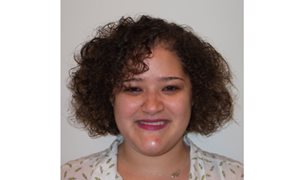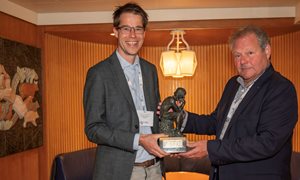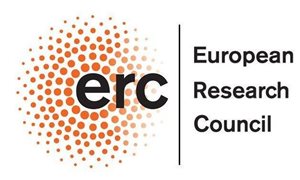 Transcription factors are frequently mutated in acute leukemia but how they contribute to disease pathogenesis at the molecular level remains largely unknown.
Transcription factors are frequently mutated in acute leukemia but how they contribute to disease pathogenesis at the molecular level remains largely unknown.
For one leukemia type it was shown that the promoter of the oncogene GFI1 was bound by the mutated transcription factor RUNX1-ETO resulting in extremely high GFI1 expression in this subgroup. Using leukemia mouse models, it was subsequently shown that high GFI1 expression was essential for leukemia initiation and maintenance, identifying GFI1 as therapeutic target in this leukemia type.
For the other type of leukemia, epigenetic studies showed that it is characterized by cryptic intragenic transcription activation and that the sites of intragenic transcription activation are bound by the mutated transcription factor KMT2A-MLLT3.
Collaborations with the group of Joost Martens, theme Cancer development and immune defense and the Khandanpour leukemia group, University of Essen, Germany, were fundamental to this work.
A recently awarded KiKa grant (650 K€) to group leaders Bert van der Reijden and Joost Martens will be used to further investigate the role of cryptic intragenic transcription activation in acute myeloid leukemia pathogenesis.
Publications:
- GFI1 is required for RUNX1/ETO positive acute myeloid leukemia. Haematologica
- C-terminal BRE overexpression in 11q23-rearranged and t(8;16) acute myeloid leukemia is caused by intragenic transcription initiation. Leukemia
Bert van der Reijden
Related news items

T cell immunity is directed by tetraspanin CD53
5 July 2022 T cells are immune cells that are key for the defense against pathogens and cancer. T cells depend on the membrane protein CD45 to initiate T cell receptor signaling, but how CD45 is controlled at the molecular level is poorly understood. go to page
A single protein complex balances the very first lineage decision of cells in human: towards foetus or placenta
21 June 2022 The international group of researchers spearheaded by Dick Zijlmans and Hendrik Marks together with colleagues from KU Leuven, examined which proteins are associated with the chromatin and how this affects gene transcription. go to page
Dutch Society of Clinical Chemistry Science & Innovation Award for the team of Hans Jacobs
14 June 2022 The team of Hans Jacobs pioneers on the development of personalized diagnostics to measure minimal residual disease in patients with multiple myeloma. go to page
European grants for groundbreaking Radboudumc research Professors Roshan Cools and Peter Friedl receive ERC Advanced Grant
26 April 2022The European Research Council (ERC) is awarding grants to Roshan Cools and Peter Friedl, both professors at Radboudumc. While Cools will investigate how brains control behaviour in (stressful) situations, Friedl will work on developing a new cancer therapy.
go to page
Saponin-based adjuvant-induced dendritic cell cross-presentation is dependent on PERK activation published in Cellular and Molecular Life Sciences
20 April 2022 Lisa Huis in ‘t Veld, Nataschja Ho and colleagues from the team of Gosse Adema published in Cellular and Molecular Life Sciences that Saponin-based adjuvant-induced dendritic cell cross-presentation is dependent on PERK activation. go to page
Rubicon grants awarded to three RIMLS researchers
19 April 2022Three researchers have received Rubicon funding from NWO/ZonMw. This will enable Elke Muntjewerff, Laura de Vries and Laurens van de Wiel to do research at a foreign research institute for the next two years.
go to page